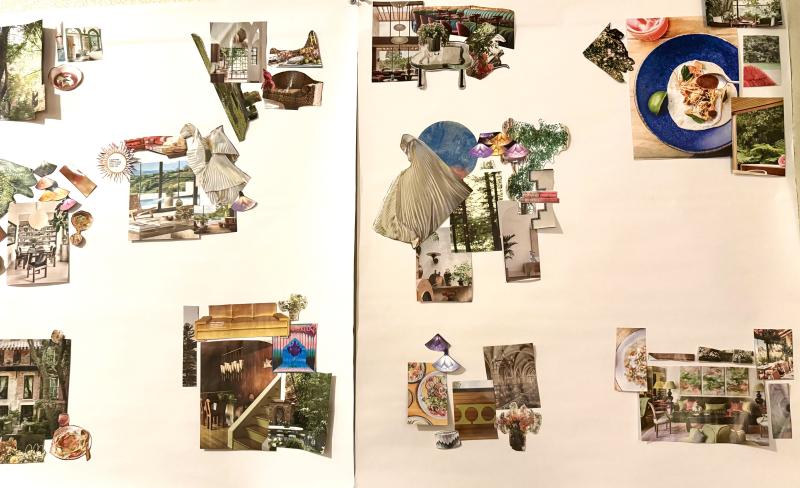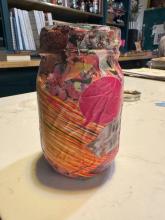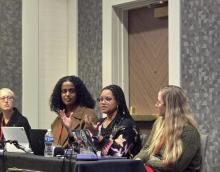Community, Data, and the Work of Showing Up
By: Alisha Harris

Working in community reshapes how I understand my art, my research, and the conversations that surround them. It requires a commitment to showing up and engaging with data in all its forms. I’ve continued to learn that research isn't confined to academic or clinical settings; it can be deeply emotional, embodied, and rooted in lived experience. Data, like the communities it emerges from, is diverse, layered, and complex.
One of the most valuable aspects of engaging in this graduate community of practice has been hearing alternative perspectives and witnessing how fellow scholars approach research. These experiences challenged and expanded my understanding of what can be legitimately constituted as data. Through collaboration across programs and methodologies, I've come to see research as something that can take many forms.
I believe a successful community practice is defined not just by outcomes or methods, but by how people show up. Dialogue, mutual support, and an openness to difference are just as essential to a critical practice as is technical rigor. If I want to engage in work that truly serves my community, it must reflect and include them. Being present within that community is necessary not only for gathering insights and participant input, but also noticing what might otherwise be overlooked.
Ultimately, I’ve come to understand research as a form of connection, not just discovery. This community has continued my exploration and movement away from extractive research models and toward ones that are more relational, communal, and filled with artistic inquiry. These approaches resonate with my practice, which emphasizes narrative, storytelling, and collective memory.
Both through this experience and across my academic career, I’ve felt increasingly called to make my work more visible, accessible, and participatory. Being part of this cohort has reinforced the importance of circulation: that meaningful work must be shared, not held in private. We don't exist in isolation; we are inherently part of something greater. I am grateful to this graduate community of practice for shaping how I move forward in my approach to entering community, doing work within it, and ensuring it remains embedded in the process from start to finish.
–
Alisha Renée Harris is a scholar, interdisciplinary artist, and creative technologist who creates critical works through both physical and digital media. Her work explores identity, culture, politics, and nature. By experimenting across mediums, she creates immersive narrative journeys that delve into the complex relationships between the self and the surrounding environment. More information about her research, art, and creative practices can be found at alishareneeharris.com.

